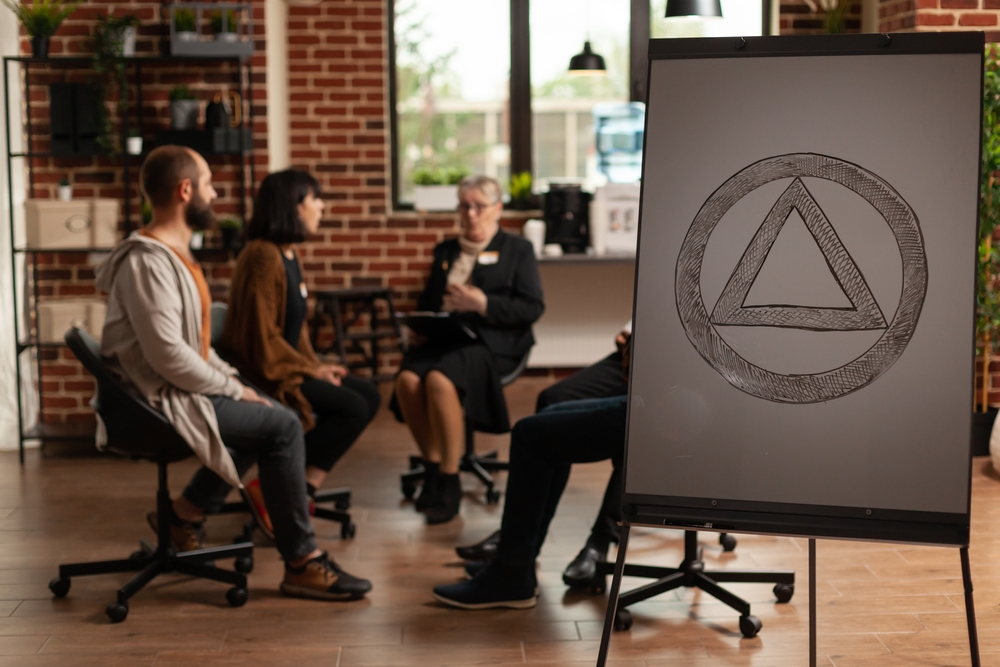


Your addiction treatment will vary based on a range of factors, including the level of care you need, the substance you are addicted to, your mental health, and what you can afford.
There are several treatment options available for addiction recovery. If you are unfamiliar with them, this article is for you. We will discuss the various therapies for addiction treatment to help you decide which one suits you or your loved one best.
Detoxification can either be part of a more extensive treatment program or a stand-alone service that various treatment facilities offer. It is an essential step for people who actively use drugs and alcohol.
Medical detox helps you get rid of addictive substances from your body. During detoxification, you will not use the drugs you are addicted to until the chemical substances leave your body.
Detox must occur in a professionally monitored environment because you are likely to experience painful or severe withdrawal symptoms. In addition, in some circumstances, withdrawal may have psychological effects.
Most drug abusers tend to revert to drug use when they experience withdrawal symptoms. Therefore, there is a need to have professional help to ensure you stay on course.

In addition to ensuring you are safe during the withdrawal period, professionals will help ease discomfort during the withdrawal period. For example, specific medications can reduce the physical symptoms of withdrawal.
Note that detoxification does not address the underlying behavioral causes of addiction. For this reason, it is best to combine it with other therapies.
Rational Emotive Behavior Therapy (REBT) is a therapy that helps you realistically manage your behavior, emotions, and thoughts. The main goal is to help you recognize and change negative thinking patterns. This helps to overcome the mental distress and psychological patterns that can result in addiction.
Cognitive Behavioral Therapy has proved efficient in treating alcohol and drug addiction. CBT focuses on behavioral health. It helps you recognize your unhealthy behavioral patterns and how to deal with them better. Additionally, CBT enables you to identify your triggers and develop coping skills for them.
Often, CBT is combined with other therapies to treat drug addiction.
Twelve-step facilitation therapy, also called 12-step programs, can effectively treat alcohol and substance abuse. This group therapy recognizes that addiction has negative physical, emotional, social, and spiritual consequences.
These 12 step programs begin with acceptance, surrender to a higher power, and finally involvement in regularly scheduled group meetings. Most support groups like Alcoholics Anonymous use the twelve-step facilitation therapy.

Contingency management treats various addictions, including tobacco, narcotics, and alcohol addiction. Its primary focus is reinforcing positive behavior, e.g., staying sober by giving you tangible rewards.
According to the National Institute on Drug Abuse, research has demonstrated that contingency management successfully prevents relapse in recovering addicts.
Medication plays a vital role in addiction recovery. However, it is combined with behavioral therapies for it to be effective.
Some medications suppress cravings, reduce addictive behaviors, and improve your mood. A good example is lofexidine, an FDA-approved medication for addiction treatment. Lofexidine eases withdrawal symptoms and reduces cravings in patients recovering from opioid addiction.
Most addiction treatment facilities offer three treatment programs:
The treatment program ideal for you significantly depends on your level of addiction and personal preference.
Residential treatment programs offer intensive and comprehensive inpatient treatment. They can be for a short time (30 days), but some may extend for one year.
The advantage of this treatment program is that it incorporates a holistic approach to changing your relationship with drugs or alcohol. Often, you will undergo counseling, extensive education, and behavioral therapy to ensure you don’t revert to drug use.
Generally, residential addiction treatment programs have a multi-angled treatment approach. Most programs require you to start with detox before proceeding to other aspects of the program, including peer support and self-help programs.
Residential programs are beneficial to those who have abused drugs for an extended time and people with substance use disorders. If you got a dual diagnosis on your initial consultation, you should consider opting for residential programs.
Outpatient treatment programs offer two services; one-time appointments and repeated appointments. Unlike residential treatment programs, you don’t have to stay at the treatment facility.
Most outpatient treatment programs focus on opioid or heroin addiction. That is because medical providers use medications like buprenorphine and methadone to control cravings and minimize the effects of opioids. You will have to visit the clinic regularly to get the medicine. Treatment facilities often require you to pass a drug test to remain in the program.
Not only does addiction affect the individual, but also family members, friends, and other people they interact with. For this reason, there is a need for counseling. Most outpatient addiction treatment programs also offer individual and family therapy in the form of counseling.
Counseling addresses underlying causes of addiction, including past trauma, depression, anger, and many others. It also mends relationships by helping family members understand the reasons for compulsive behavior.

Several support groups connect people struggling with addiction, the most common ones being Alcoholics Anonymous and Narcotics Anonymous. The main aim of support groups is to help you remain accountable for your recovery.
By sharing your experience with other people who have undergone similar experiences, you remain more encouraged on your recovery journey. Support groups have proved to be an essential tool for long-term recovery.
Since you are now more familiar with the various types of addiction treatment programs, you can decide which one suits you best. We highly recommend going for a professional addiction assessment before deciding on treatment.
More Than Rehab offers high-quality, individualized addiction treatment services throughout the recovery process. Our treatment models are founded on successful national models. Contact us today to start your recovery journey.


